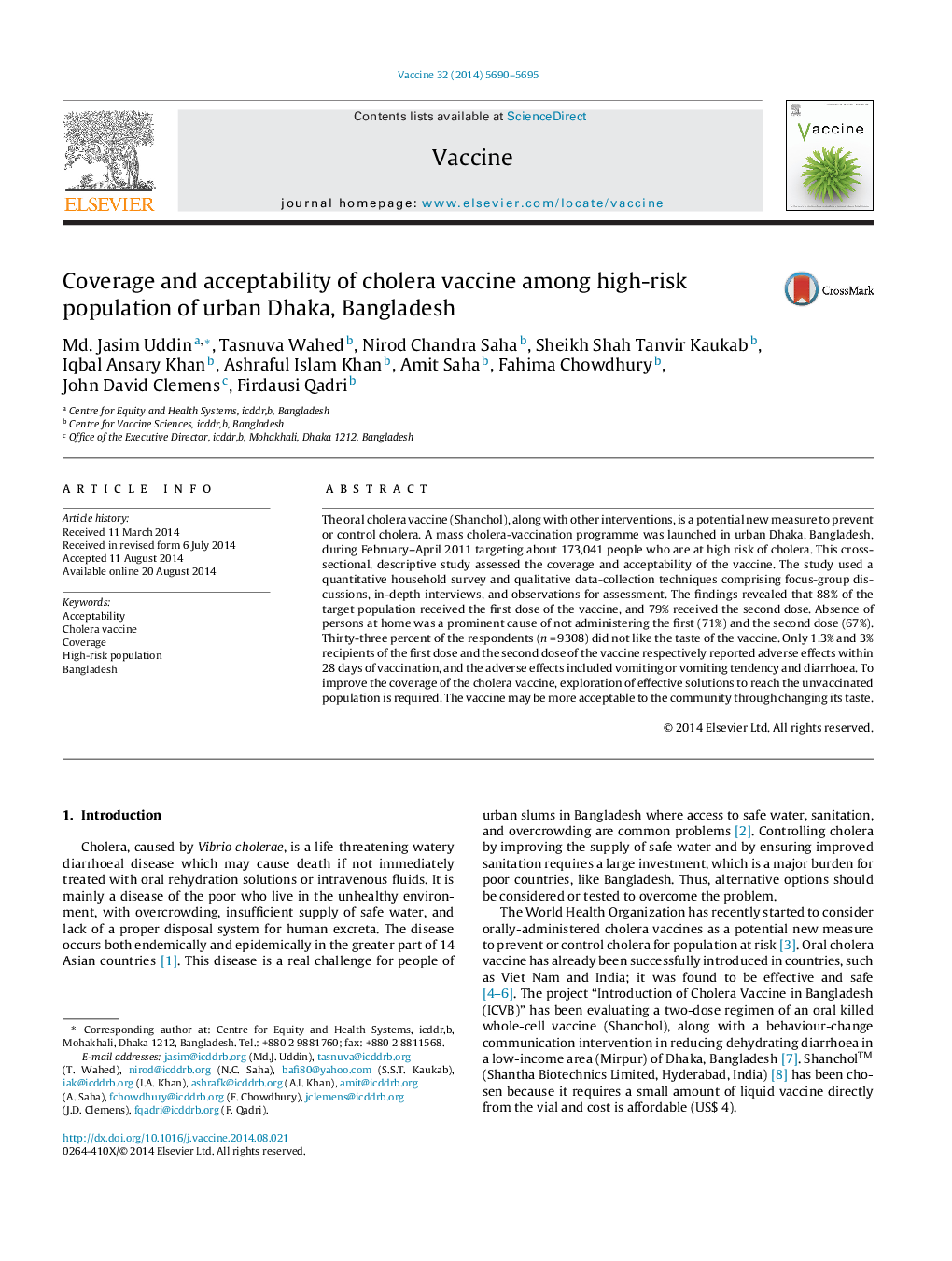| Article ID | Journal | Published Year | Pages | File Type |
|---|---|---|---|---|
| 10964317 | Vaccine | 2014 | 6 Pages |
Abstract
The oral cholera vaccine (Shanchol), along with other interventions, is a potential new measure to prevent or control cholera. A mass cholera-vaccination programme was launched in urban Dhaka, Bangladesh, during February-April 2011 targeting about 173,041 people who are at high risk of cholera. This cross-sectional, descriptive study assessed the coverage and acceptability of the vaccine. The study used a quantitative household survey and qualitative data-collection techniques comprising focus-group discussions, in-depth interviews, and observations for assessment. The findings revealed that 88% of the target population received the first dose of the vaccine, and 79% received the second dose. Absence of persons at home was a prominent cause of not administering the first (71%) and the second dose (67%). Thirty-three percent of the respondents (n = 9308) did not like the taste of the vaccine. Only 1.3% and 3% recipients of the first dose and the second dose of the vaccine respectively reported adverse effects within 28 days of vaccination, and the adverse effects included vomiting or vomiting tendency and diarrhoea. To improve the coverage of the cholera vaccine, exploration of effective solutions to reach the unvaccinated population is required. The vaccine may be more acceptable to the community through changing its taste.
Related Topics
Life Sciences
Immunology and Microbiology
Immunology
Authors
Md. Jasim Uddin, Tasnuva Wahed, Nirod Chandra Saha, Sheikh Shah Tanvir Kaukab, Iqbal Ansary Khan, Ashraful Islam Khan, Amit Saha, Fahima Chowdhury, John David Clemens, Firdausi Qadri,
